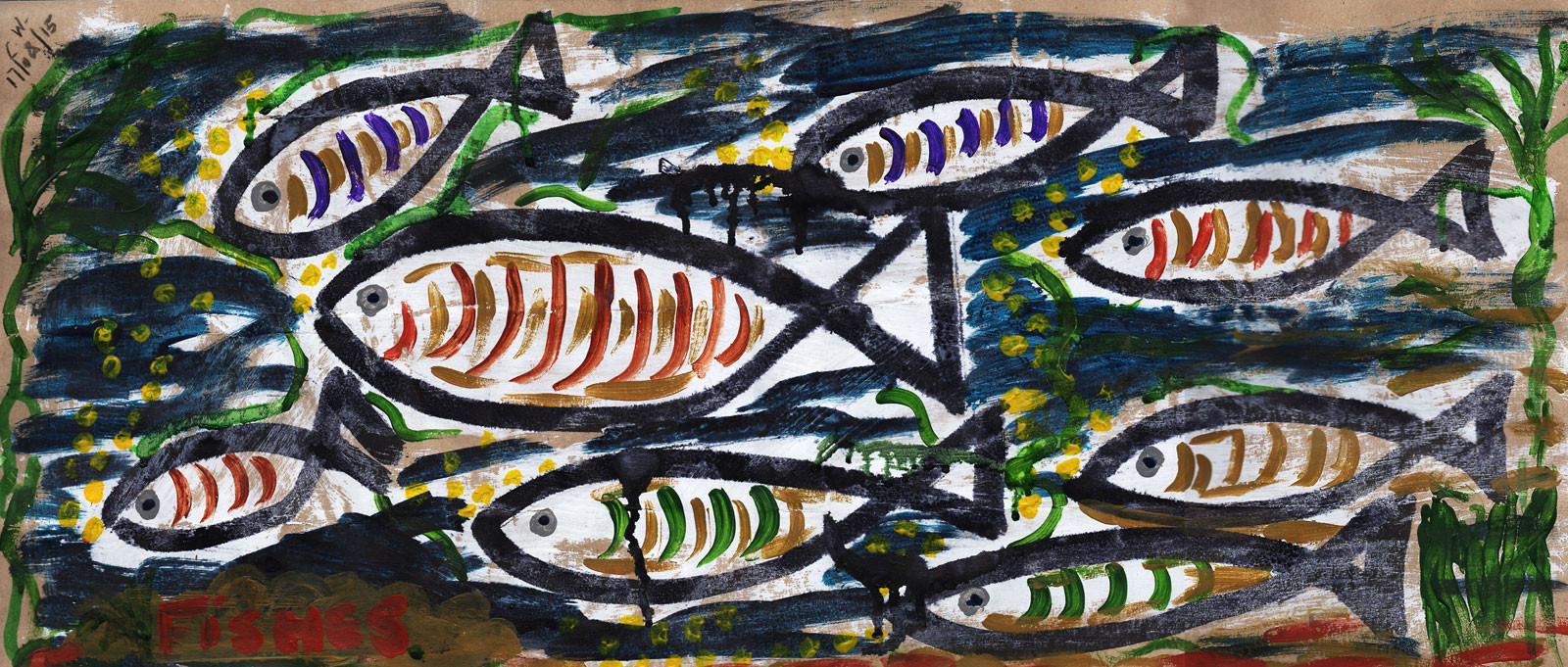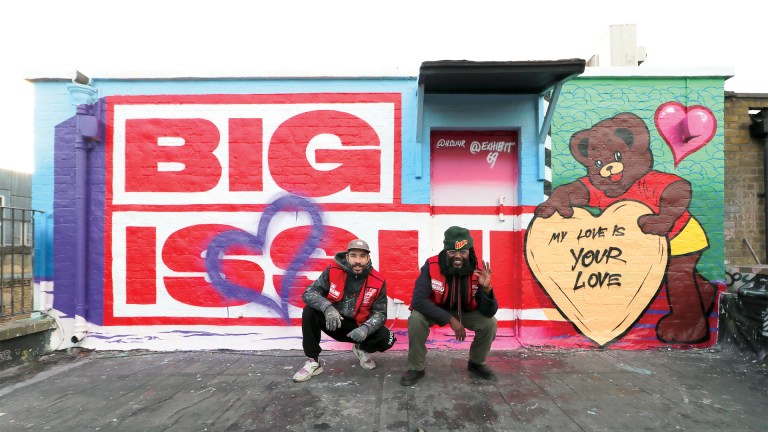In the final few days before the 240 Project’s West London building closed for lockdown, staff gathered contact details from as many centre regulars as they could to ensure they kept in touch.
And they’ve since sent out care packages of tea, chocolate and cards with personal notes to members to let them know they’re not alone.
“A lot of our members said they felt distant from the world anyway, so distancing measures have made things even harder on that front,” Parker said. “Some don’t have anyone to talk to apart from through the project.”
Crucially the team has sent out packages of art materials too, so people can still get creative in lockdown and during the virtual group art sessions – though there’s no pressure to produce something and people are welcome to join for some company and conversation.
Parker added: “You can feel the warmth in the group and people opening up. So it’s just been lovely.
“It’s a totally different medium for us to work in, but it’s running smoothly now. It feels slightly alien for the ethos of what we do – bringing people together – but I think we and our members have enjoyed it more than we thought we would.”
Advertising helps fund Big Issue’s mission to end poverty
Most 240 Project members are in temporary accommodation like hostels and short-term lets, with three without anywhere to go at the time of lockdown, and Parker told The Big Issue that some members whose first language is not English have been struggling to navigate the system to ensure they can stay in secure housing.
One benefit of operating alongside social distancing means the organisation can reach out to people beyond their usual geographical area and hope to support those feeling isolated even outside London.
“Now everyone is a 240 member,” Parker said. “We’re an organisation that tries to look after people in the community who feel socially excluded or isolated. But since Covid-19 hit, everyone is isolated. We try to say to people: you don’t have to have been a previous member or homeless or socially excluded. If you’re feeling isolated, drop in to one of our sessions and see if you like it.”
The team primarily stays in touch with members through text and by posting session updates on Instagram, but is also working to stay connected to all members who don’t want to use the virtual groups or who don’t have internet access.
“Wi-fi’s expensive,” Parker said. “A lot of our members were using public space broadband and street wi-fi. That’s limited in lockdown. Others don’t have smartphones and don’t get onto the internet unless they’re using the computers at our centre. So what we’ve been doing has been great and really beneficial – but ultimate we’re hoping for it to be safe to reopen the building sooner rather than later.”
Advertising helps fund Big Issue’s mission to end poverty
There are daily hangout sessions too, where members are invited simply to log on and have a chat with other members and with staff, plus emotional wellbeing drop-ins with guided cognitive behavioural therapy and mindfulness activities.
Parker hopes anyone who is feeling alone or isolated will consider joining in with the project. “We’re a broadchurch,” he said, “our membership is so diverse and we welcome everyone. “Our remit is about using creativity to bolster people’s self-confidence. We really focus on getting people a sense of self-worth through doing, and that seems more important than ever.”
Image: A 240 Project member who wished to stay anonymous









